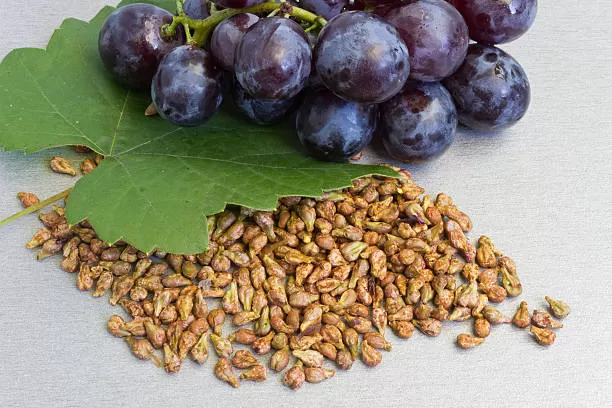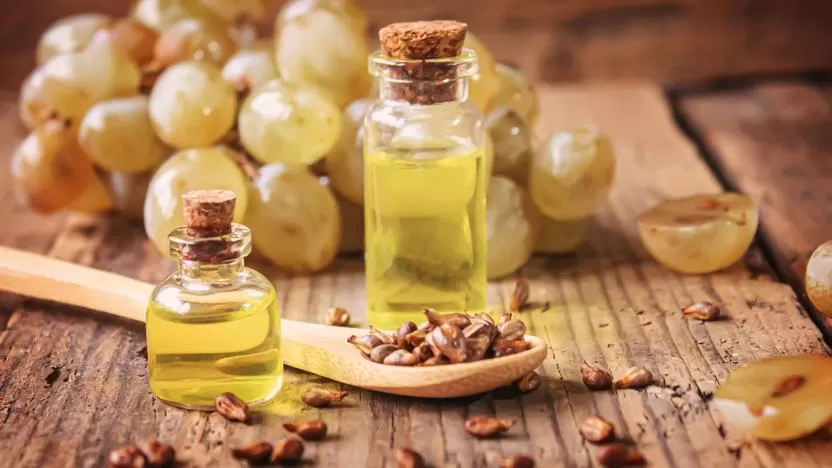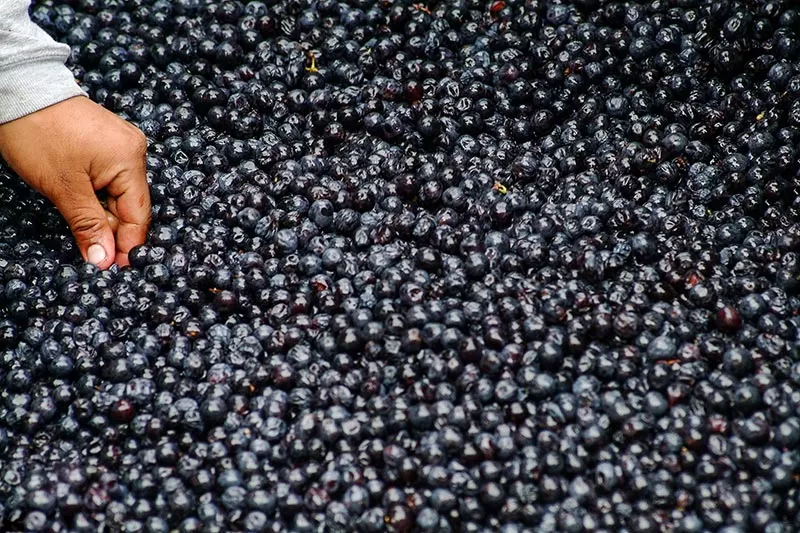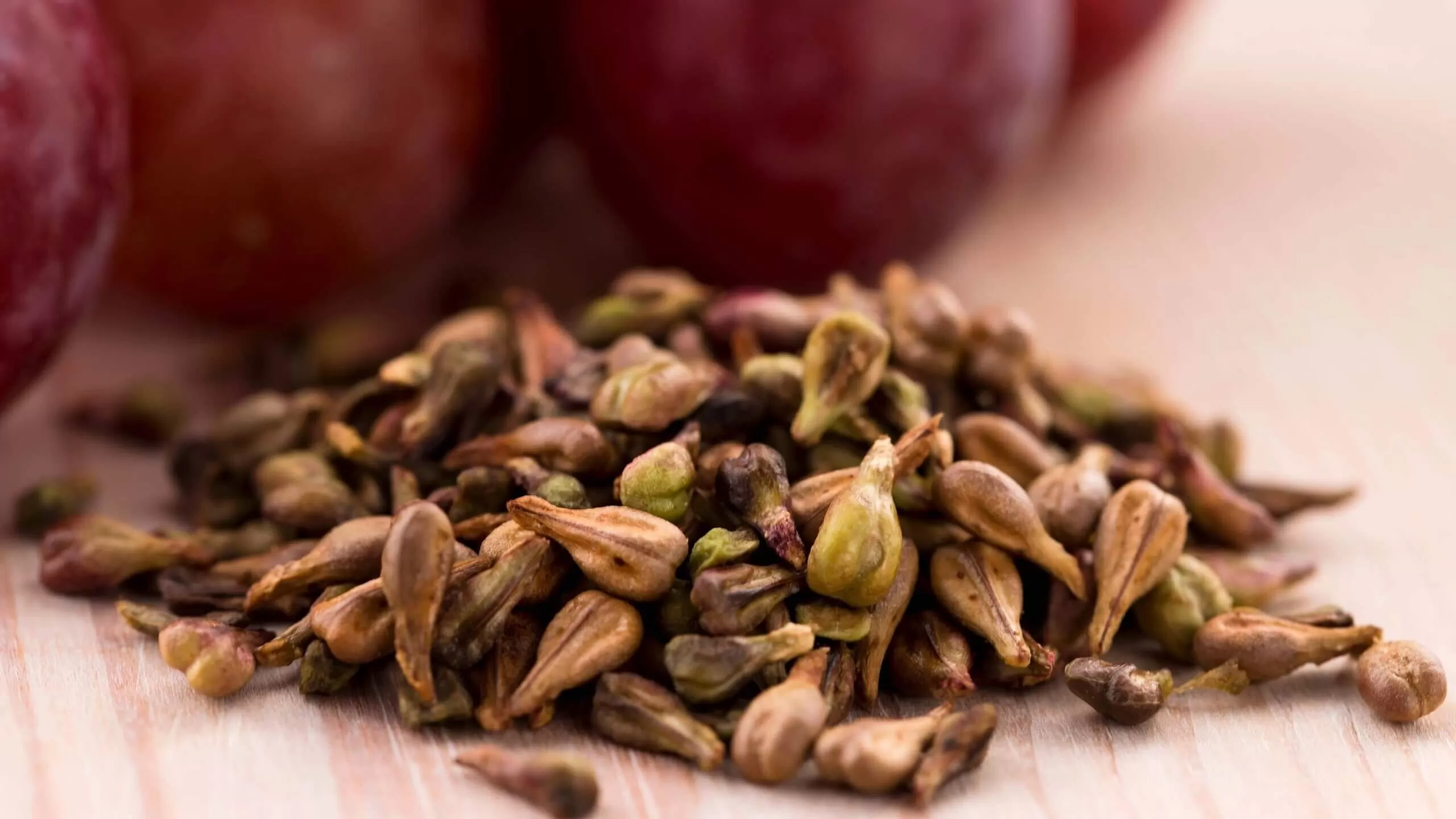- 0086-571-85302990
- sales@greenskybio.com
Is Grape Seed Extract Good for Your Liver?
2025-03-17
In recent years, Grape Seed Extract has captured significant attention in the fields of complementary medicine and natural health for its potential to support liver health. As the liver plays a critical role in detoxification, metabolism, and overall bodily function, ensuring its optimal performance is essential. This article examines the question: Is Grape Seed Extract good for your liver? We will delve into the composition, mechanism of action, scientific evidence, and safety considerations for Grape Seed Extract while highlighting its potential benefits for liver health in a professional and comprehensive manner.

Overview of Grape Seed Extract
Grape seed extract is derived from the seeds of Vitis vinifera, the common grapevine, and is known for its high content of polyphenolic compounds, particularly oligomeric proanthocyanidins (OPCs). These polyphenols are potent antioxidants that have been proven effective in neutralizing free radicals in the body. As free radicals are unstable molecules known to cause oxidative stress—a major contributing factor to chronic liver diseases—the antioxidant properties of grape seed extract may provide significant therapeutic benefits.
The Role of the Liver in Health
Before considering grape seed extract’s potential effects on liver health, it is important to understand the liver’s fundamental role in the human body. The liver is the largest internal organ and is involved in a myriad of vital processes, including:
• Detoxification: The liver filters blood and metabolizes toxins, drugs, and other potentially harmful substances.
• Metabolism: It plays a central role in carbohydrate, lipid, and protein metabolism, converting nutrients into forms that the body can store or use.
• Synthesis: The liver produces bile, essential proteins such as albumin, and various clotting factors.
• Storage: It stores vital nutrients and vitamins, ensuring a steady supply under varying dietary conditions.
Given these multifaceted roles, maintaining optimal liver function is crucial. Diseases such as non-alcoholic fatty liver disease (NAFLD), cirrhosis, and hepatitis can compromise liver function and have significant health implications. Natural interventions aimed at protecting and supporting the liver, such as grape seed extract, attract substantial interest.
Antioxidant Properties and Liver Protection
The liver is especially vulnerable to oxidative stress due to its role in metabolizing toxins, which generates free radicals as byproducts. These free radicals can damage hepatocytes (liver cells), leading to inflammation, fibrosis, or other liver diseases. The bioactive oligomeric proanthocyanidins in grape seed extract are powerful antioxidants that scavenge these free radicals and help reduce oxidative damage.
The antioxidant mechanism works by donating electrons to free radicals, effectively neutralizing them before they can damage cellular structures. By mitigating oxidative stress, grape seed extract may slow the progression of liver damage and bolster the liver’s ability to recover from periods of metabolic or toxic stress.
Anti-Inflammatory Effects
In addition to its antioxidant properties, grape seed extract displays anti-inflammatory effects crucial to maintaining liver health. Chronic liver inflammation is a key driver in the progression of several liver diseases, including NAFLD and hepatitis. Research has shown that grape seed extract can inhibit pro-inflammatory cytokines—molecules that signal and intensify the inflammatory response. This reduction in inflammatory markers not only helps prevent further liver damage but also aids in restoring liver function in individuals who have experienced liver stress.
Research in diet-induced and chemically induced liver injury models has provided evidence supporting the anti-inflammatory effects of grape seed extract. The reduction in markers like tumor necrosis factor-alpha (TNF-α) and interleukin-6 (IL-6) in some studies underscores the potential of grape seed extract to create a more balanced inflammatory state, thereby helping mitigate progressive liver injury.
Mechanisms of Action on Liver Health
Several scientific studies suggest that grape seed extract promotes liver health through multiple mechanisms:
1. Free Radical Scavenging: The polyphenolic components in grape seed extract directly scavenge reactive oxygen species (ROS), thereby reducing oxidative stress that otherwise can damage liver cells.
2. Enhancing Endogenous Antioxidant Enzymes: Some studies indicate that grape seed extract can upregulate the production of natural antioxidant enzymes, such as superoxide dismutase (SOD) and glutathione peroxidase. This enhancement strengthens the liver’s natural defense systems.
3. Modulation of Inflammatory Pathways: By interfering with nuclear factor kappa B (NF-κB) pathway activation, grape seed extract may help suppress the production of inflammatory mediators that are harmful to the liver.
4. Lipid Metabolism Regulation: Grape seed extract has shown potential in modulating lipid metabolism, a factor especially relevant in fatty liver diseases. Improved lipid metabolism can reduce fat accumulation in liver cells, a common precursor to non-alcoholic fatty liver disease.
5. Protection Against Toxin-Induced Liver Damage: Experimental models of liver injury induced by substances like carbon tetrachloride have shown that pre-treatment with grape seed extract can attenuate liver damage, suggesting a protective role against environmental and chemical toxins.
Scientific Evidence and Clinical Studies
The potential liver benefits of grape seed extract have been investigated in both animal models and human studies. In rodent models of liver injury, administration of grape seed extract has been associated with reduced biomarkers of liver damage, improved histological profiles, and restored antioxidant enzyme activity. These findings provide a basis for its potential use in liver protection.
In human studies, researchers have observed improvements in liver enzyme levels, which are often elevated in patients with liver dysfunction. For example, reduction in serum alanine aminotransferase (ALT) and aspartate aminotransferase (AST) levels has been noted in some trials, suggesting an amelioration of liver inflammation and damage. Although these results are promising, more well-designed randomized controlled trials are necessary to confirm the efficacy of grape seed extract in patients with various liver conditions.
Moreover, grape seed extract is often included in formulations aimed at supporting liver detoxification and overall wellness. Its synergistic effects when combined with other nutraceuticals, such as milk thistle, further reinforce its role in promoting liver recovery and health.
Safety Profile and Potential Side Effects
When considering any supplement, the safety profile is as critical as its efficacy. Grape seed extract is generally regarded as safe when consumed in recommended dosages. However, it is important to note that, like any bioactive compound, grape seed extract may cause side effects in some individuals, including gastrointestinal discomfort, headache, or allergic reactions. Those taking medications, especially anticoagulants or drugs metabolized by the liver, should consult their healthcare provider before integrating grape seed extract into their regimen, as there can be potential interactions.
Additionally, the quality and concentration of active compounds can vary significantly between different products. Sourcing high-quality extracts from reputable manufacturers is crucial to ensure the benefits and safety of the supplement. Standardization to a specific percentage of oligomeric proanthocyanidins can also help in achieving consistent results across studies and clinical applications.
Dose Considerations
Determining the optimal dose of grape seed extract for liver support requires careful consideration. Doses ranging from 100 mg to 300 mg per day have been used in studies focused on liver health. However, depending on the individual's condition, body weight, and concurrent therapies, dosages may need to be adjusted. Healthcare professionals typically recommend starting with the lower end of the dosage spectrum and monitoring for both efficacy and any adverse reactions.
Future Directions in Research
The potential liver-protective benefits of grape seed extract present a promising area for further research. Future studies are expected to focus on:
• Large-scale randomized controlled trials to better establish dose-response relationships and long-term safety.
• Investigations into the synergistic effects when combined with other hepato-protective supplements.
• Detailed mechanistic studies to further elucidate the exact pathways through which grape seed extract exerts its effects.
• Exploration of its potential use in specific liver diseases such as NAFLD, alcoholic liver disease, and drug-induced liver injury.
Conclusion
Grape seed extract appears to be a promising natural intervention for supporting liver health. Its rich composition of antioxidants and anti-inflammatory compounds enables it to combat oxidative stress, reduce inflammation, and potentially improve lipid metabolism—all key elements in maintaining liver function. Despite the encouraging findings from experimental studies and early clinical trials, further research is essential to fully validate its efficacy and establish standardized dosing guidelines.
For individuals seeking to support their liver health through natural means, grape seed extract offers a multifaceted approach. It not only protects liver cells against damage from oxidative stress but may also contribute to the repair and regeneration processes that are vital for overall liver function. As with any supplement, those interested in using grape seed extract should consult with healthcare professionals, particularly if they have existing liver conditions or are on medication.
In summary, while grape seed extract is not a miracle cure, it possesses the potential to serve as an effective adjunct in a comprehensive approach to liver health. Continued scientific exploration will likely expand our understanding of its benefits, ensuring that clinicians and patients alike can make informed decisions about integrating this natural extract into liver support and detoxification protocols.
-
Is grape seed extract anti aging?
2025-03-17
-
Is grape extract good for you?
2025-03-17
-
Is grape seed extract safe for kidneys?
2025-03-17
-
Can I Take Grape Seed Extract Every Day?
2025-03-17
-
Who Cannot Take Grape Seed Extract?
2025-03-17














